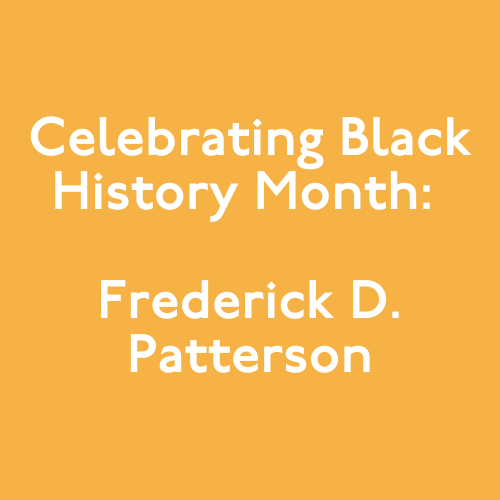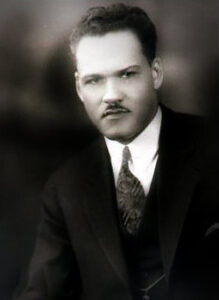This month, we’re celebrating influential Black leaders who have improved educational and social emotional learning opportunities for all students.
“How people feel about you reflects the way you permit yourself to be treated. If you permit yourself to be treated differently, you are condemned to an unequal relationship.”
Who was Frederick Douglass Patterson?
Frederick Douglas Patterson was born in Washington D.C. in 1901. He was named after Frederick Douglas, an abolitionist and social reformer, who had lived not far from Patterson in the same D.C. neighborhood. After becoming an orphan at the age of 2, he moved to Texas with other family members. Misunderstood by many, Patterson was deemed the ‘least likely to succeed’ by his classmates. However, this quickly turns into a story of how the power of education can transform people and impact the direction of their lives.
Patterson’s sister enrolled him in the elementary school of Samuel Huston College (now Huston-Tillotson College) in Austin, TX. It was here that Patterson began to thrive in his classes and develop a passion for education. He continued to excel throughout his academic years and by age 31, Patterson obtained a doctorate of veterinary medicine and a master of science from Iowa State, as well as a doctorate of philosophy from Cornell University.
He went on to teach in the veterinary division at the Tuskegee Institute (now, Tuskegee Unviersity) and headed the Agriculture department. At age 34, Patterson was selected as the president of the Tuskegee Institute. During his tenure there, Patterson introduced several new programs including one in commercial aviation. This later led to the making of the Tuskegee Airmen.
Inspired through his own experience of the profound impact that education had on him, and motivated by the belief that education was crucial for Black mobility, Patterson began to look for ways to help fund black colleges and help students afford it. In 1944, he established the United College Negro Fund (UNCF), a philanthropic endeavor that still functions today granting scholarships for historically black colleges and universities (HBCU’s). By 1987, UNCF was providing funds for 42 colleges and aiding over 45,000 students. This same year, Patterson won the Presidential medal of freedom.
Patterson’s success teaching in higher education and his advancement of the UNCF also led to an invitation to join President Harry S. Truman’s President Commission in 1946-1947. While on this commission, Patterson helped influence major legislation for higher education. This included the development of the system of community colleges and Title III of the Higher Education Act of 1965, which brought institutional support to smaller colleges and universities throughout America.
How does Frederick Douglass Patterson’s legacy live on?
Frederick Douglass Patterson’s work has helped an enormous number of Black students obtain higher education degrees. Moreover, his work has also helped colleges and universities throughout the country secure funding and institutional advancement.
The UNCF is still alive and thriving. It has helped to more than double the number of minority students attending college since its establishment. Each year, the UNCF awards more than 10,000 student scholarships. As quoted on the UNCF website, the core of the program stems from the belief that “a mind is a terrible thing to waste, but a wonderful thing to invest in”.
Equity gaps are a barrier to ensuring that all students receive a quality education. Patterson’s work acknowledges this, and aims to help create a more equitable, just education system for all. The plans and legislations that he helped develop and inform over 70 years ago still influence students and institutions today.
As we celebrate the impact of influential Black leaders in education this month, we give gratitude for Frederick Douglasss Patterson. Join us for a deep breath of gratitude for his work, impact, and ever-growing legacy.
How are you celebrating Black History Month? Share this article on social media to celebrate Frederick Douglass Patterson, and let us know who else you are learning about this month!











